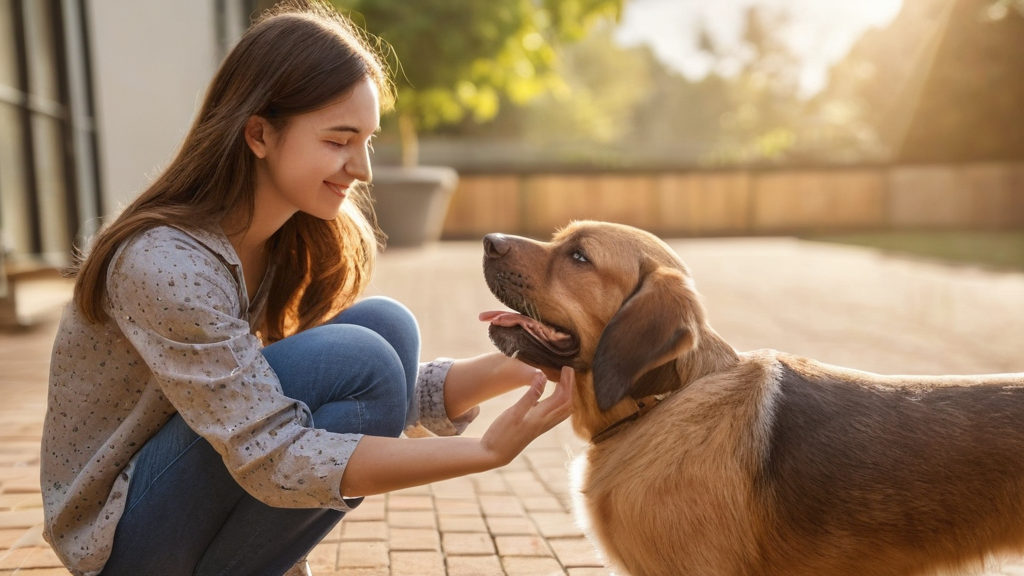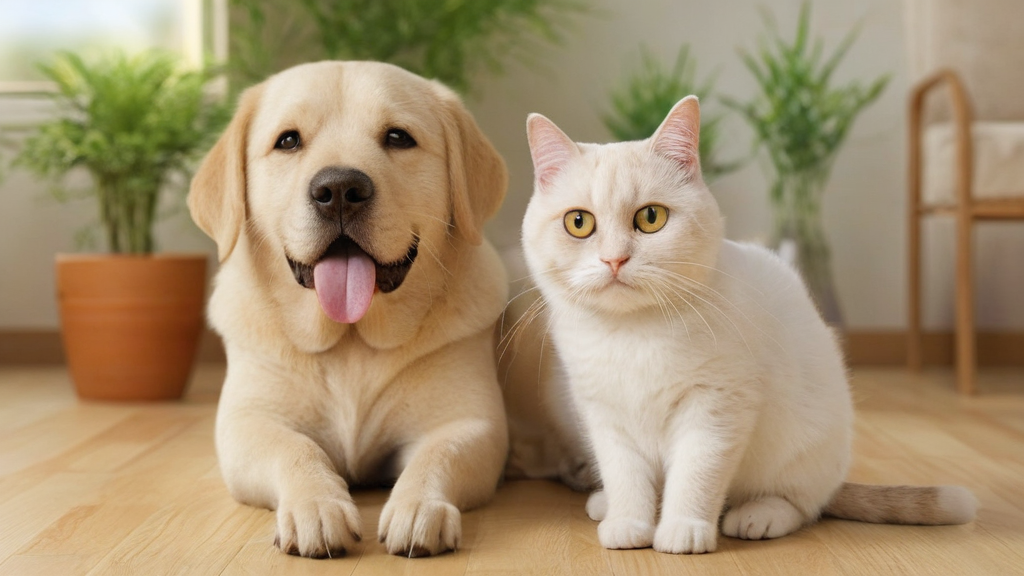Why Pet Parents Should Prioritize Pet Care and Well-being
Pets are more than just animals; they’re beloved family members who depend entirely on their owners for survival, health, and happiness. As responsible pet parents, understanding the critical importance of comprehensive pet care goes far beyond basic feeding and occasional veterinary visits.
Emotional Connection and Mental Health Benefits
Pet care isn’t just about physical maintenance—it’s about nurturing a deep emotional bond. When you invest time and attention in your pet’s well-being, you’re creating a profound connection that benefits both you and your furry companion. Regular interaction, playtime, and consistent care help reduce stress, anxiety, and depression for both pet and owner.
Preventive Health Strategies
Proactive pet care can significantly reduce long-term health complications. Regular check-ups, vaccinations, and comprehensive health screenings help detect potential issues before they become serious medical conditions. This approach not only saves money on expensive treatments but also ensures your pet maintains optimal health throughout their life.
Essential Care Components
Comprehensive pet care involves multiple critical elements:
- Nutritional management
- Regular exercise
- Mental stimulation
- Consistent grooming
- Dental hygiene
- Preventive medical treatments
Financial and Emotional Investment
Responsible pet ownership requires understanding that pets represent a significant commitment. The average pet owner spends approximately $1,380 annually on pet-related expenses, demonstrating the substantial investment required for proper care. This financial commitment directly translates into improved quality of life for your animal companion.
Nutrition and Dietary Management
Proper nutrition forms the foundation of excellent pet health. Each animal has unique dietary requirements based on age, breed, weight, and overall health condition. Consulting with veterinary professionals helps develop personalized nutrition plans that support your pet’s specific needs, promoting longevity and vitality.
Psychological Well-being Considerations
Pets experience complex emotional landscapes. They require consistent mental stimulation, social interaction, and environmental enrichment. Implementing engaging activities, providing interactive toys, and maintaining predictable routines contribute significantly to their psychological health.
Training and Behavioral Development
Comprehensive pet care extends beyond physical needs. Proper training helps establish communication, builds trust, and prevents potential behavioral issues. Positive reinforcement techniques create strong, mutually respectful relationships between pets and their owners.
Exercise and Physical Activity
Regular physical activity is crucial for maintaining your pet’s health. Different animals require varying levels of exercise, but consistent movement helps:
- Maintain healthy body weight
- Improve cardiovascular function
- Reduce anxiety
- Prevent muscle deterioration
- Enhance overall mobility
Technology and Modern Pet Care
Emerging technologies are revolutionizing pet care. From advanced tracking devices to telemedicine consultations, pet parents now have unprecedented access to tools supporting comprehensive animal wellness.
Long-term Health Monitoring
Consistent health monitoring allows early detection of potential medical concerns. Annual comprehensive examinations, blood work, and specialized screenings provide invaluable insights into your pet’s overall condition, enabling proactive healthcare interventions.
Emotional Resilience and Companionship
The emotional bond between pets and their owners transcends traditional relationships. By prioritizing their well-being, you’re not just caring for an animal—you’re nurturing a profound, life-enriching connection that offers unconditional love and support.
Responsible pet parenting represents a holistic approach combining physical care, emotional support, and committed understanding. Your dedication ensures your beloved companion enjoys a healthy, happy, and fulfilling life, creating lasting memories and an unbreakable bond.
The Emotional and Physical Benefits of Responsible Pet Ownership
Owning a pet is more than just having a companion; it’s a profound journey of love, responsibility, and mutual growth. Pet parents who invest time, care, and understanding into their animal companions experience remarkable emotional and physical transformations that extend far beyond simple pet ownership.
Understanding the Deep Connection
When you welcome a pet into your life, you’re not just acquiring an animal – you’re developing a relationship that can significantly enhance your overall well-being. Pets offer unconditional love and emotional support that can help reduce stress, anxiety, and feelings of loneliness. Their constant presence provides a sense of comfort and security that is unparalleled.
Physical Health Benefits of Pet Ownership
Regular interaction with pets promotes numerous physical health advantages. Dog owners, for instance, tend to be more active due to daily walks and play sessions. These activities naturally increase physical exercise, which can:
- Lower blood pressure
- Improve cardiovascular health
- Enhance overall fitness levels
- Boost immune system functioning
Mental Wellness and Emotional Support
Pets serve as incredible emotional anchors. They provide non-judgmental companionship that can help individuals combat depression and manage emotional challenges. The simple act of petting an animal releases oxytocin, a hormone associated with bonding and reducing stress.
Responsibility and Personal Growth
Caring for a pet teaches valuable life skills. Pet parents learn patience, empathy, and consistent responsibility. Children who grow up with pets often develop stronger emotional intelligence and learn important lessons about compassion and care.
Nutritional and Healthcare Commitment
Responsible pet ownership means prioritizing your animal’s health through:
- Balanced nutrition
- Regular veterinary check-ups
- Preventative medical care
- Mental stimulation and exercise
Social Connectivity
Pets can also serve as social catalysts. Dog parks, pet events, and walking routines create opportunities for human interactions and community building. Many pet owners form lasting friendships through shared animal experiences.
Financial and Time Investment
While pet ownership requires financial resources and time commitment, the returns are immeasurable. The joy, companionship, and personal growth experienced far outweigh the monetary investments.
Understanding Individual Pet Needs
Each animal has unique requirements. Whether you have a high-energy dog, a independent cat, or an exotic pet, understanding and meeting their specific needs is crucial for a harmonious relationship.
Long-term Health Perspectives
Studies consistently demonstrate that pet owners often experience:
| Health Aspect | Potential Benefit |
|---|---|
| Cardiovascular Health | Reduced risk of heart disease |
| Mental Health | Decreased stress and anxiety levels |
| Physical Activity | Increased daily movement and exercise |
Pet ownership is a holistic experience that transforms both the animal’s life and the human’s journey. By approaching this relationship with love, commitment, and understanding, pet parents create a profound bond that enriches life in countless unexpected ways.
Essential Health and Nutrition Strategies for Happy Pets
Caring for your beloved pets goes far beyond providing shelter and occasional affection. Pets rely on their owners for comprehensive health management and nutritional support that ensures their overall well-being and longevity.
Understanding Nutritional Requirements
Every pet has unique dietary needs that change throughout their life stages. Puppies and kittens require different nutritional profiles compared to senior animals. High-quality protein sources, balanced vitamins, and minerals play crucial roles in maintaining optimal health.
Key Dietary Considerations
- Select age-appropriate commercial pet foods
- Monitor portion sizes to prevent obesity
- Include variety in protein sources
- Ensure consistent hydration
- Consider breed-specific nutritional requirements
Preventive Healthcare Strategies
Regular veterinary check-ups are fundamental in detecting potential health issues early. Comprehensive examinations help identify underlying conditions before they become serious medical challenges. Vaccinations, dental care, and parasite prevention are essential components of proactive pet healthcare.
Vaccination Protocol Importance
Maintaining an updated vaccination schedule protects pets from potentially fatal diseases. Core vaccines guard against common viral and bacterial infections, significantly reducing health risks.
Exercise and Mental Stimulation
Physical activity isn’t just about maintaining a healthy weight. Regular exercise supports cardiovascular health, strengthens muscles, and provides mental enrichment. Interactive toys, daily walks, and play sessions contribute to your pet’s overall wellness.
Mental Health Considerations
Pets experience emotional landscapes similar to humans. Providing consistent attention, reducing stress, and creating positive environments help maintain their psychological well-being. Socialization and training play significant roles in developing confident, balanced animals.
Nutritional Supplementation
While balanced diets are primary, some pets might benefit from targeted supplements. Omega-3 fatty acids, joint support compounds, and probiotics can address specific health concerns. Always consult veterinary professionals before introducing any supplementation.
Supplement Selection Guidelines
- Choose veterinarian-recommended products
- Consider your pet’s specific health needs
- Monitor for potential allergic reactions
- Maintain consistent dosage recommendations
Weight Management Strategies
Obesity significantly impacts pet health, leading to numerous chronic conditions. Implementing portion control, selecting nutrient-dense foods, and maintaining consistent exercise routines help manage weight effectively.
Specialized Dietary Needs
Some pets require specialized diets due to medical conditions like diabetes, kidney disease, or allergies. Working closely with veterinarians helps develop tailored nutrition plans addressing individual health requirements.
Monitoring Dietary Response
Observing your pet’s response to dietary changes is crucial. Watch for improvements in energy levels, coat quality, and overall vitality. Regular weight checks and health assessments provide valuable insights into nutritional effectiveness.
Environmental Considerations
Creating a safe, stress-free environment supports your pet’s holistic health. Minimize exposure to toxins, provide comfortable resting areas, and maintain consistent routines that promote emotional stability.
Ultimately, responsible pet ownership demands comprehensive attention to physical, nutritional, and emotional needs. By implementing strategic healthcare approaches, pet parents can ensure their furry companions enjoy vibrant, healthy lives filled with love and vitality.
Building Strong Bonds: Connecting with Your Animal Companion
Understanding Emotional Communication
Every pet has a unique personality and communication style. Dogs might wag their tails or lean against you, while cats might purr or knead to show affection. Learning to recognize and respond to these subtle signals helps you understand your pet’s emotional state and needs. Spending quality time observing their behaviors allows you to develop an intuitive understanding of their feelings.
Daily Interaction Strategies
Regular engagement is crucial for strengthening your relationship. This doesn’t just mean feeding and walking your pet, but creating meaningful interactions:
- Engage in interactive play sessions
- Practice training exercises together
- Spend quiet time cuddling or sitting together
- Talk to your pet in soothing, gentle tones
Physical and Mental Stimulation
Pets require both physical exercise and mental challenges to remain healthy and happy. Regular walks, puzzle toys, and training sessions provide essential stimulation that prevents boredom and reduces potential behavioral issues. These activities also serve as bonding opportunities, allowing you to work together and build mutual trust.
Emotional Attunement
Animals are incredibly perceptive to human emotions. They can sense stress, happiness, and anxiety. By maintaining a calm and positive demeanor, you create a safe emotional environment for your pet. This mutual emotional understanding strengthens your connection and promotes a sense of security for both of you.
Health and Wellness Connection
Caring for your pet’s physical health demonstrates your commitment to their well-being. Regular veterinary check-ups, proper nutrition, and maintaining a consistent healthcare routine show your pet that you are dedicated to their long-term health and happiness.
Creating Shared Experiences
Introducing your pet to new environments, meeting other animals, and participating in activities together helps build shared memories. Whether it’s hiking, traveling, or simply exploring a new park, these experiences create lasting bonds and mutual excitement.
Respect and Boundaries
Developing a strong connection requires respecting your pet’s individual boundaries. Not all animals enjoy constant physical contact or dramatic displays of affection. Learning to read and respect their comfort levels ensures a trusting relationship.
Communication Beyond Words
Non-verbal communication plays a significant role in pet relationships. Consistent eye contact, gentle touches, and calm body language communicate love and safety more effectively than verbal commands. Your pet learns to trust and understand you through these subtle interactions.
Long-Term Commitment
Building a strong bond is a continuous journey that requires patience, understanding, and consistent effort. Each interaction is an opportunity to deepen your connection, whether through play, care, or quiet companionship.
By investing time, emotional energy, and genuine care, you transform your relationship from a simple pet-owner dynamic into a profound, lifelong friendship. Your animal companion becomes not just a pet, but a trusted confidant and beloved family member.
Financial and Personal Commitments in Pet Parenting
Understanding the True Cost of Pet Ownership
Pets aren’t just adorable companions; they represent significant financial investments. The initial expenses go far beyond the adoption or purchase price. You’ll need to budget for:
- Regular veterinary check-ups
- Vaccinations and preventative medications
- High-quality nutritional food
- Training and socialization classes
- Emergency medical treatments
- Grooming supplies and services
- Pet insurance
First-year costs for a medium-sized dog can range between $1,000 to $2,000, with ongoing annual expenses averaging $500-$1,000. Cats might require slightly lower investments, but they still demand consistent financial planning.
Personal Time and Emotional Investment
Beyond monetary considerations, pets require substantial emotional commitment. Your furry friend depends entirely on you for:
- Daily exercise and mental stimulation
- Consistent emotional support
- Regular training and discipline
- Emotional bonding and companionship
Working professionals must strategically plan their schedules to accommodate pet care. This might involve:
– Arranging dog walking services
– Investing in interactive toys
– Creating structured daily routines
– Potentially adjusting work arrangements
Long-Term Health and Wellness Considerations
Responsible pet parenting means proactively managing your animal’s health throughout their lifecycle. This involves:
| Life Stage | Key Health Considerations |
|---|---|
| Puppy/Kitten | Initial vaccinations, spaying/neutering, basic training |
| Adult | Regular check-ups, dental care, maintaining healthy weight |
| Senior | Specialized veterinary care, potential chronic condition management |
Financial Planning Strategies
Smart pet parents develop comprehensive financial strategies:
- Create dedicated pet emergency funds
- Research and compare pet insurance options
- Budget for predictable and unexpected expenses
- Consider pet savings accounts
Emotional Preparedness Matters
Pet ownership isn’t just about resources—it’s about emotional readiness. You’ll experience:
– Deep companionship
– Potential stress during challenging times
– Learning patience and empathy
– Developing a profound interspecies bond
Making Informed Decisions
Before committing to pet parenthood, honestly assess your:
– Current lifestyle
– Financial stability
– Available time and energy
– Living environment
– Long-term life goals
Pets are living beings requiring consistent love, attention, and resources. They aren’t temporary accessories but lifelong companions demanding holistic care and commitment.
By understanding these multifaceted responsibilities, you’ll create a nurturing environment where both you and your pet can thrive. The rewards of thoughtful, prepared pet parenting far outweigh the challenges, offering immeasurable joy and companionship.
Key Takeaway:
Key Takeaway: The Ultimate Guide to Responsible and Loving Pet Parenting
Pet parenting is far more than a casual responsibility—it’s a profound commitment that transforms both the lives of animals and their human companions. At its core, caring for pets goes beyond mere feeding and shelter; it’s about creating a holistic environment of love, health, and mutual understanding.
The journey of responsible pet ownership begins with recognizing that pets are sentient beings who depend entirely on their human families for physical and emotional well-being. When pet parents prioritize comprehensive care, they unlock a world of mutual benefits that extend far beyond basic maintenance.
Health and nutrition form the cornerstone of exceptional pet care. This means providing balanced diets tailored to specific animal needs, regular veterinary check-ups, preventative medical treatments, and understanding the unique nutritional requirements of different breeds and ages. Proper nutrition directly impacts an animal’s energy levels, immune system, and overall quality of life.
Emotional connection is equally crucial. Pets are not just animals; they are family members who thrive on consistent interaction, training, and genuine affection. By investing time in building strong bonds through play, training, and meaningful engagement, pet parents create deep, trusting relationships that benefit both species.
Explore Pet Wellness products here The financial and personal commitment of pet ownership should never be underestimated. Responsible pet parenting requires planning, resources, and a genuine long-term dedication. This includes budgeting for medical expenses, understanding potential breed-specific health challenges, and being prepared to provide consistent care throughout an animal’s entire life cycle.
Beyond the practical aspects, pet ownership offers remarkable emotional and physical benefits for humans. Studies consistently show that caring for pets reduces stress, increases physical activity, provides companionship, and can even improve mental health. The unconditional love and companionship of a well-cared-for pet create a symbiotic relationship of mutual growth and happiness.
Ultimately, being an exceptional pet parent means approaching animal companionship with empathy, knowledge, and unwavering commitment. It’s about creating an environment where pets can thrive physically, emotionally, and socially. By embracing this holistic approach, pet parents don’t just care for an animal—they welcome a new family member and create a legacy of love and mutual respect.
The most profound takeaway is simple: When you invest comprehensively in your pet’s well-being, you receive immeasurable returns in companionship, joy, and shared life experiences.
Conclusion
Pet parents play a crucial role in creating a nurturing, healthy, and loving environment for their animal companions. By understanding the comprehensive responsibilities of pet ownership, individuals can transform their relationship with their pets from mere caretaking to a deep, meaningful connection that enriches both lives.
The journey of responsible pet parenting goes far beyond providing food and shelter. It encompasses a holistic approach that considers emotional, physical, and financial commitments. Every decision made with compassion and knowledge contributes to the overall well-being of our furry, feathered, or scaled family members.
Investing time, resources, and emotional energy into pet care is not just an obligation but a rewarding experience that yields immeasurable returns. The strong bonds formed through attentive care, proper nutrition, regular health check-ups, and genuine emotional connection create a partnership that transcends traditional pet-owner relationships.
As pet parents continue to educate themselves and prioritize their companions’ needs, they become advocates for animal welfare and ambassadors of responsible pet ownership. The love, care, and dedication poured into these relationships create a ripple effect of compassion that extends beyond individual households.
Ultimately, caring for pets is about recognizing them as sentient beings who depend on us for their physical and emotional well-being. By embracing this responsibility with knowledge, patience, and unconditional love, pet parents can ensure their animal companions live fulfilling, healthy, and joyful lives – a testament to the profound connection between humans and animals.




